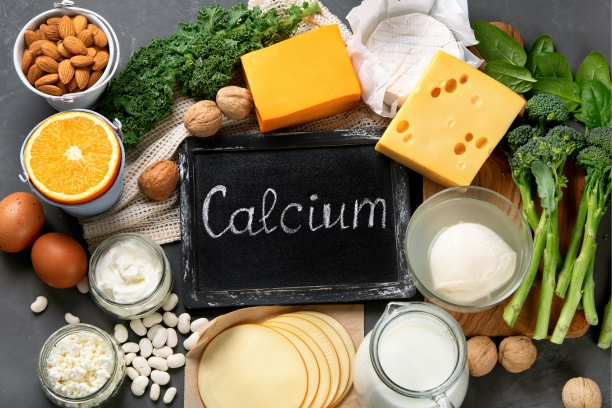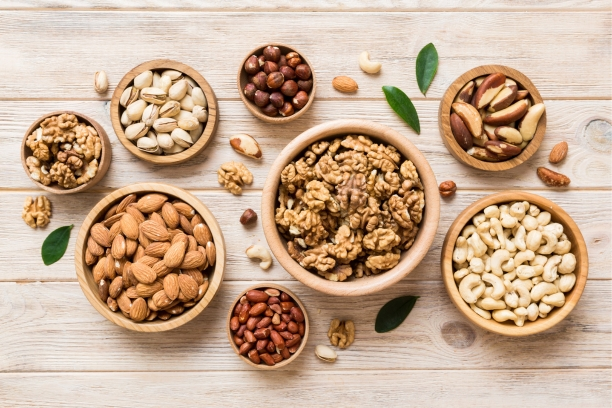Exploring Nature’s Bounty: The Best Natural Remedies for Boosting Calcium Levels
Calcium is a vital mineral essential for maintaining strong bones, supporting muscle function, and promoting overall health. While calcium supplements are widely available, many individuals prefer to explore natural remedies to boost their calcium levels. In this blog, we’ll delve into some of the best natural sources of calcium and how they can be incorporated into your daily routine to support optimal health and well-being.

Understanding Calcium Deficiency
Before we dive into natural remedies, let’s understand the importance of calcium and the consequences of deficiency. Calcium deficiency can lead to weakened bones, increased risk of fractures, muscle cramps, and other health issues. Therefore, it’s crucial to ensure an adequate intake of calcium through diet and supplements, if necessary.
Best Natural Remedies for Calcium
1. Dairy Products
- Dairy products such as milk, yogurt, and cheese are rich sources of calcium. Opt for low-fat or non-fat varieties to reduce saturated fat intake while still reaping the calcium benefits.
2. Leafy Greens
- Dark, leafy greens like kale, spinach, collard greens, and Swiss chard are excellent sources of calcium. These vegetables are not only nutritious but also versatile, making them easy to incorporate into salads, soups, smoothies, and stir-fries.
3. Fortified Foods
- Many foods, such as plant-based milk alternatives (e.g., almond milk, soy milk), orange juice, and cereals, are fortified with calcium. Check the labels to ensure you’re choosing products that provide a significant amount of calcium per serving.
4. Nuts and Seeds
- Almonds, sesame seeds, chia seeds, and tahini (sesame seed paste) are rich in calcium and other essential nutrients. Snack on a handful of nuts or sprinkle seeds on salads, yogurt, or oatmeal for a calcium boost.

5. Tofu and Edamame
- Tofu and edamame (young soybeans) are plant-based sources of calcium that are also high in protein. Incorporate tofu into stir-fries, soups, and salads, or enjoy edamame as a snack or side dish.
6. Sardines and Canned Salmon
- Sardines and canned salmon with bones are excellent sources of calcium and omega-3 fatty acids. Enjoy them on whole-grain crackers, in salads, or as part of a pasta dish for a nutritious meal.
Tips for Optimal Calcium Absorption
To maximize calcium absorption from natural sources, consider the following tips:
- Pair calcium-rich foods with sources of vitamin D, such as fatty fish, egg yolks, and fortified foods, to enhance absorption.
- Limit consumption of caffeine and foods high in oxalates (e.g., spinach, beet greens), as they can inhibit calcium absorption.
- Incorporate weight-bearing exercises into your routine to support bone health and calcium utilization in the body.
7. Vitamin K-Rich Foods
- Foods high in vitamin K, such as broccoli, Brussels sprouts, and leafy greens like kale and spinach, can support calcium absorption and bone health. Incorporate these vegetables into your meals to enhance the benefits of calcium-rich foods.
8. Avoid Excessive Salt and Sodium
- High sodium intake can increase calcium excretion through the urine, leading to potential calcium loss from the body. Limit your intake of processed and salty foods to maintain optimal calcium levels and support overall health.
9. Magnesium-Rich Foods
- Magnesium plays a crucial role in calcium metabolism and bone health. Include magnesium-rich foods such as nuts, seeds, whole grains, and green leafy vegetables in your diet to support calcium absorption and utilization.
10. Bone Broth
- Bone broth made from simmering animal bones (such as chicken or beef bones) is a nutritious source of calcium, as well as other minerals like magnesium, phosphorus, and collagen. Enjoy bone broth as a warm, nourishing beverage or use it as a base for soups and stews.
11. Herbal Teas
- Certain herbal teas, such as nettle leaf tea and oat straw tea, contain minerals like calcium and can contribute to overall calcium intake. Enjoy these teas as part of your daily hydration routine for added nutritional benefits.
12. Balanced Diet Approach
- Remember that calcium absorption is influenced by the overall composition of your diet. Aim for a balanced diet that includes a variety of nutrient-dense foods from all food groups to ensure optimal calcium absorption and utilization.
13. Yoga Poses for Bone Health
- Certain yoga poses can help strengthen bones, improve posture, and enhance calcium absorption. Poses like Tree Pose (Vrksasana), Triangle Pose (Trikonasana), and Warrior Pose (Virabhadrasana) are weight-bearing exercises that stimulate bone density and promote overall bone health.

14. Yoga for Stress Reduction
- Stress can negatively impact calcium levels in the body. Practicing yoga regularly can help reduce stress and promote relaxation, which may indirectly support calcium absorption and utilization. Poses like Child’s Pose (Balasana), Corpse Pose (Savasana), and Legs-Up-the-Wall Pose (Viparita Karani) can induce relaxation and calm the mind.
15. Breathing Techniques for Calmness
- Pranayama, or yogic breathing exercises, can help calm the mind, reduce stress, and improve overall well-being. Deep breathing techniques like Dirga Pranayama (Three-Part Breath) and Nadi Shodhana (Alternate Nostril Breathing) can enhance oxygenation and circulation, potentially benefiting calcium metabolism in the body.
16. Yoga for Better Sleep Quality
- Adequate sleep is essential for optimal calcium absorption and utilization. Yoga practices that promote relaxation and improve sleep quality, such as gentle restorative yoga sequences and guided relaxation techniques, can support overall health and vitality.
17. Mindful Eating Practices
- Yoga philosophy emphasizes mindfulness and awareness, which can be applied to eating habits as well. Practicing mindful eating during meals can enhance digestion, absorption, and assimilation of nutrients, including calcium, leading to better overall health outcomes.
18. Yoga Community Support
- Joining a yoga community or attending yoga classes can provide social support, motivation, and encouragement to maintain a regular yoga practice. Connecting with like-minded individuals who prioritize health and well-being can inspire positive lifestyle changes and reinforce the importance of holistic self-care.
Visit Here:-Naturopathic Approaches to Managing Anemia




